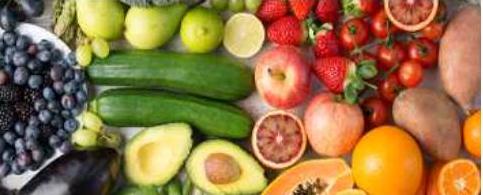 We all know what is a healthy balanced diet (At least we think we do ) . Most nutrition guidelines recommend lots of green leafy vegetables, fruits and whole grains along with limiting the intake of processed foods, sugar , alcohol, tobacco salt and maintaining an age- height appropriate weight.
We all know what is a healthy balanced diet (At least we think we do ) . Most nutrition guidelines recommend lots of green leafy vegetables, fruits and whole grains along with limiting the intake of processed foods, sugar , alcohol, tobacco salt and maintaining an age- height appropriate weight.
But when you are suffering from cancer , these guidelines can be difficult to follow as you need to fight the disease itself as well as the Stress of treatment.
Nutrition is one of the most important aspect of cancer treatment, because healthy body tolerates the treatment better and recovers fast!! Isn’t it logical?
Almost always, a change in diet is essential to help build up the strength and withstand the effects of cancer and its treatment. Now , who likes a sudden major change in their life style? This is the reason why majority of cancer patients find it difficult to follow the “ cancer nutrition guidelines” .
When you are diagnosed with cancer , your oncologist will talk about the treatment plan. which may include surgery , radiation therapy , chemotherapy , hormonal therapy or combination of treatments. All these treatments, essentially target the cancer cells, but our healthy cells bear the brunt as well. This damage to the normal cells, is what causes side effects.
Approach to nutrition differs in cancer patients, as compared to general population. For instance, cancer patients need high fat, high calorie food to maintain their weight because Basal Metabolic Rate (BMR) increases significantly in all cancer patients along with increase in requirements of calorie, fat & protein by 1.5 to 2 times as compared to that of a healthy individual. Some patients need soft and cold foods like ice-cream or milk shakes as they are unable to eat solids due to oral ulcers
Some common side effects that can affect nutrition are:
- Loss of appetite
- Oral ulcers
- Dry mouth
- Change in taste or smell
- Nausea
- Vomiting
- Loose stool
- Constipation
- Fatigue (Feeling tired all the time)
Not all patients suffer from these side effects. These are dependent on multiple factors like the type of cancer , stage of cancer , part of body affected, general health of patient and type, dose & length of treatment. Most side effects can be managed by medicines, lifestyle change and positive attitude. They even reduce over time once the treatment is completed. Discussions with your oncologist or cancer team will make it easy to deal with it.


